Metal Gear Solid 6 wishlist: What we'd love to see from a new MGS
If Metal Gear Solid 6 is to happen, even as a remake of 1987's 2D Metal Gear, it needs to build on MGS5: The Phantom Pain
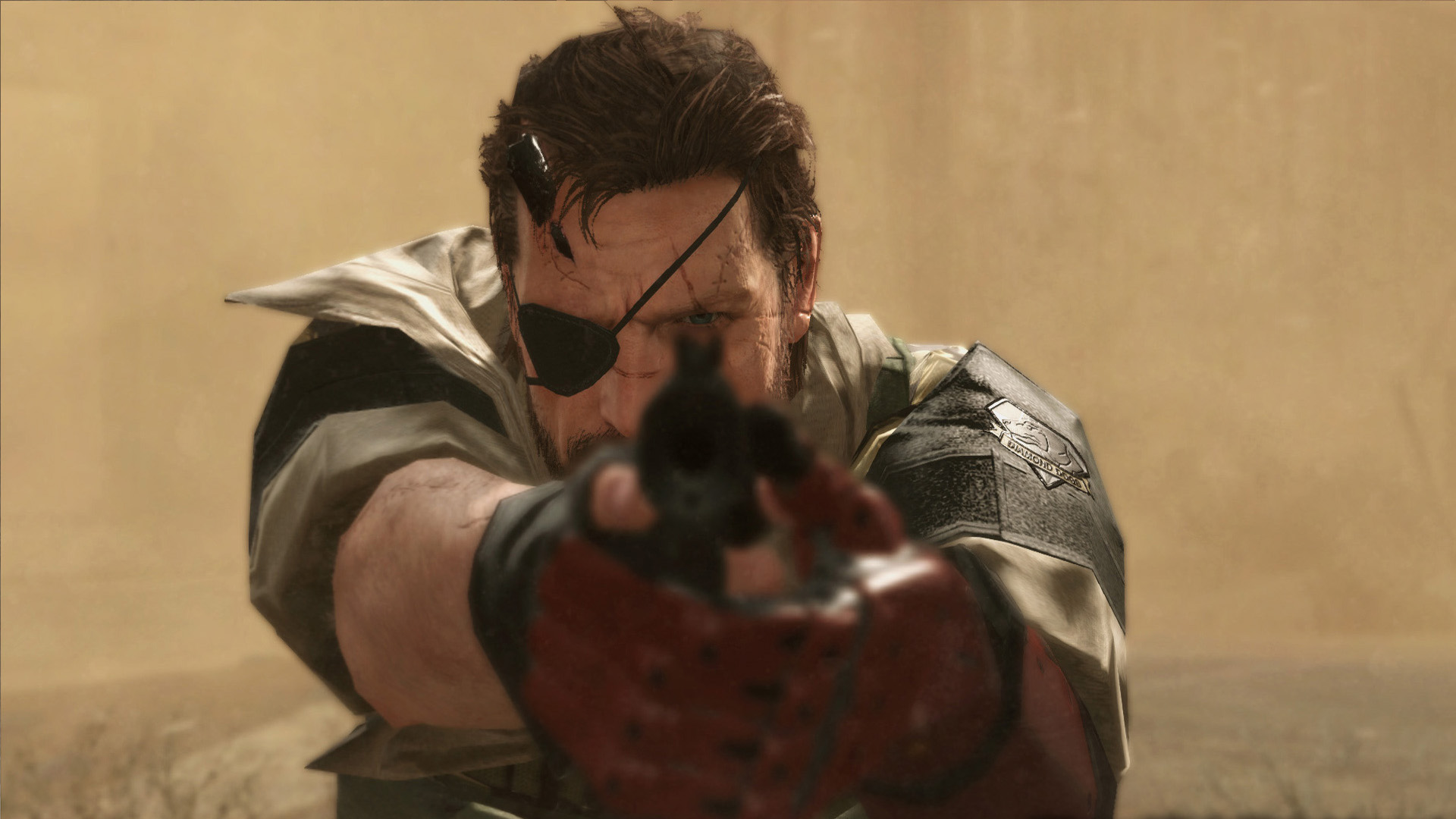
The 35th anniversary of Metal Gear Solid is behind us now, and it brought no sign of a Metal Gear Solid 6. In fact, Konami is yet to confirm the existence of a new Metal Gear game, but that hasn't stopped the internet from trying to will it into development.
It's been over seven years since the release of Metal Gear Solid 5: The Phantom Pain, and series creator Hideo Kojima is other occupied with Death Stranding and a new Xbox exclusive, so a returning partnership between Konami and Kojima Productions seems increasingly unlikely. Then again, stranger things have happened.
While we wait to see what the future has in sight for Solid Snake and his confusing family tree, keep reading for all of the roundups around Metal Gear Solid 6, and our wishlist for what we'd like to see a series return achieve.
Why any kind of Metal Gear Solid 6 release date might be a long way off
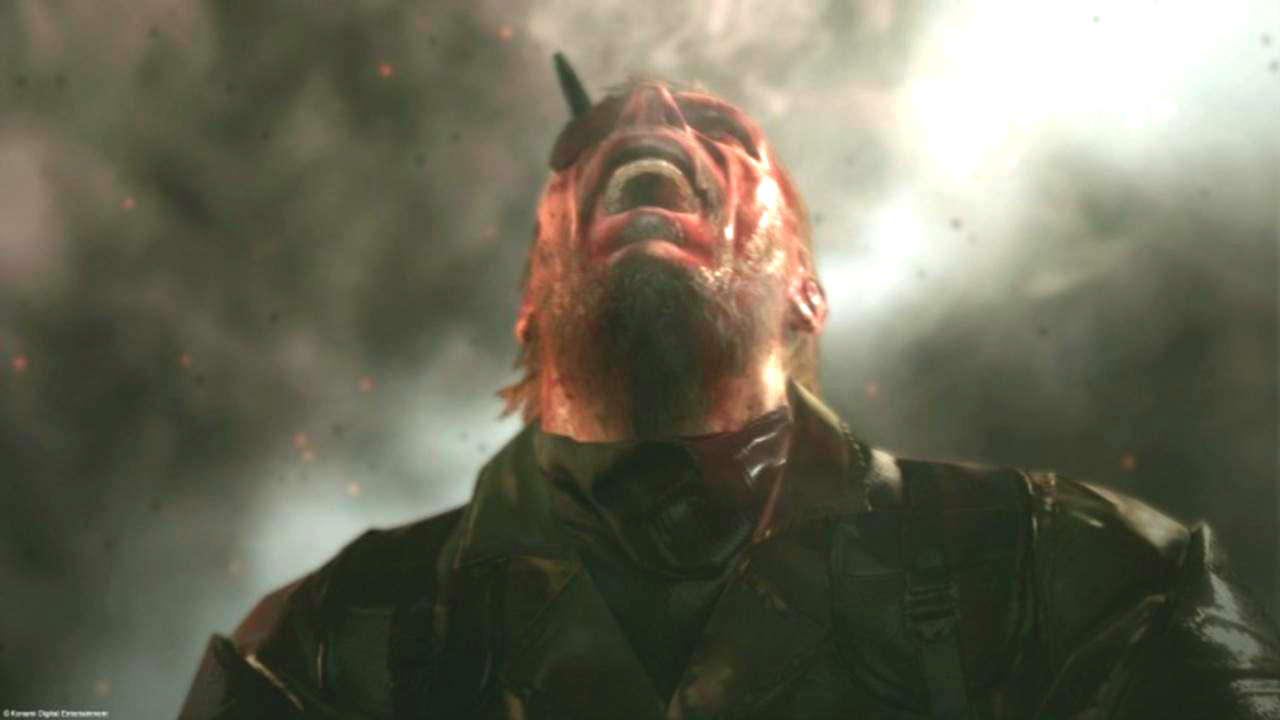
Prior to the release of Metal Gear Solid 5: The Phantom Pain (MGS5) in September 2015, publisher Konami announced news of internal restructuring efforts. At that time, the Kojima Productions logo disappeared from the official Konami website and all promotional material for MGS5, with Kojima leaving the company not long after the game’s release. The only details of this dispute available to the public are an inside report published by GameSpot and a report by Nikkei Asian Review which notes that according to former employees, Konami barred ex-Metal Gear team members from using their experience with Konami on their CVs.
It’s tempting to conclude that Kojima and Konami didn’t separate on good terms, but if the rumors about Kojima Productions’ involvement with the planned Silent Hills reboot for PS5 are true, maybe both parties are on their way to reforging their relationship. Currently, that’s the only way Kojima can work on both Silent Hills and Metal Gear, as Konami is the sole owner of both IPs. While Sony is reportedly looking to buy both from the publisher, it’s unlikely Konami would part with its strongest franchises, especially factoring in the aforementioned reboot. Metal Gear Solid 6 - should it come to pass - is likely to be led by Konami, but as things stand, there’s currently no info when, or even if the company plans to return to the franchise.
Metal Gear Solid 6 wish list: what we'd like to see
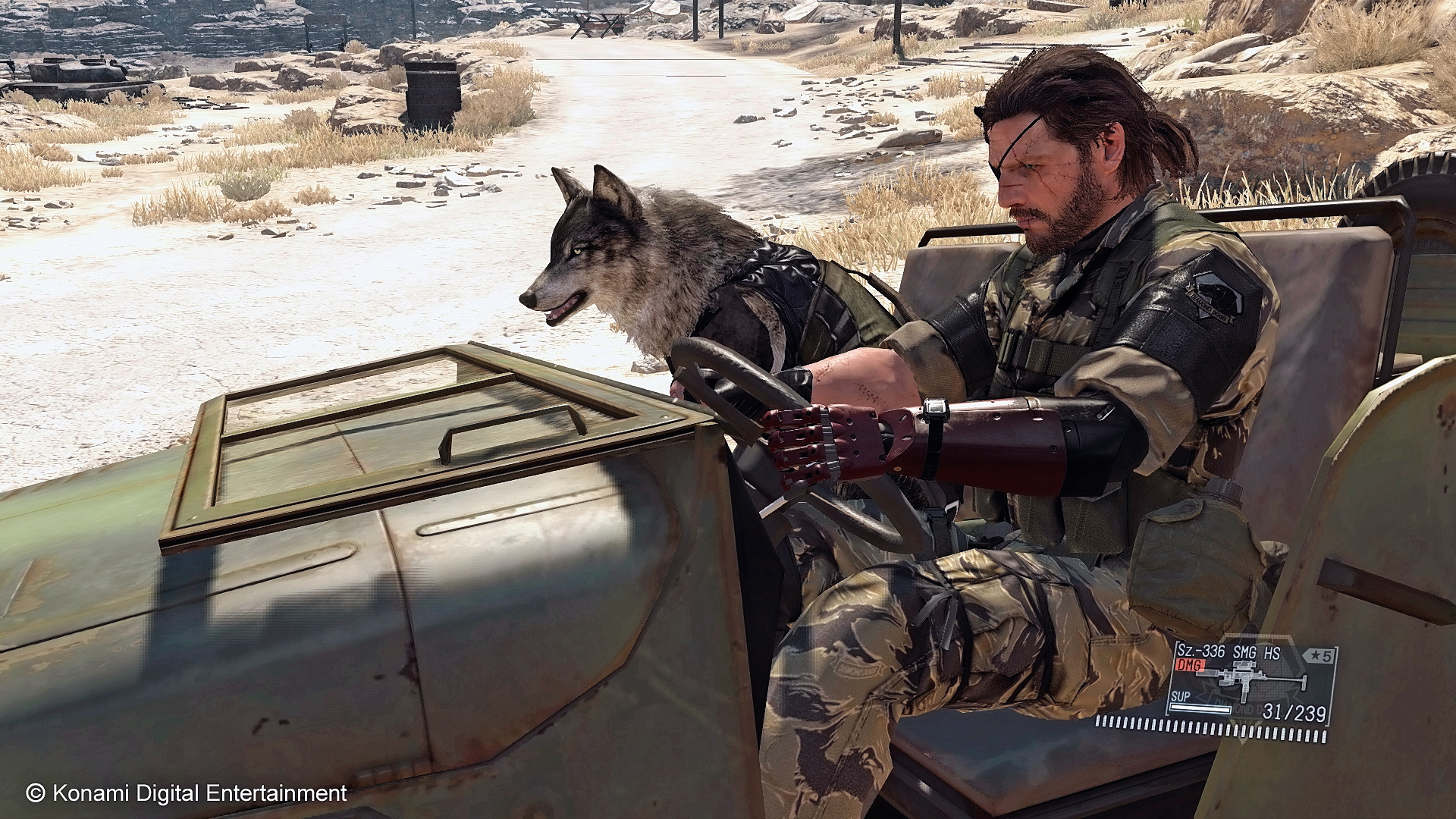
We’re likely never going to find out what Kojima had planned for the Metal Gear series, if indeed he had more plans at all, having repeatedly stated his desire to leave the series. In fact, Kojima stepped aside from Metal Gear Solid 4, only to take the helm when he became dissatisfied with progress on the project. Luckily, Metal Gear Solid 5 is an excellent game, which could provide a lot of the groundwork for Metal Gear Solid 6, should a chronological sequel be pursued. These are our suggestions.
1. Tightened open world
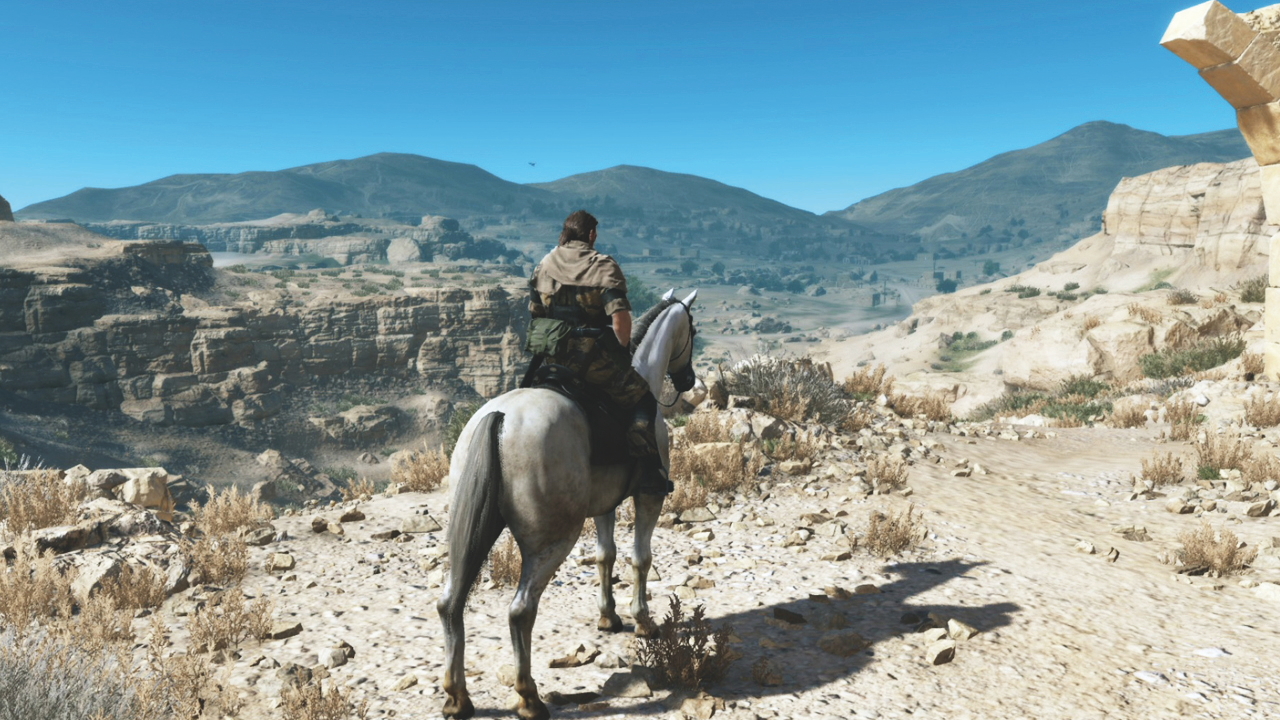
Metal Gear Solid 5's open-world setting was certainly one of the most novel changes for the Metal Gear franchise. It’s absolutely massive, but the scale isn’t a problem in itself. Missions in Metal Gear Solid 5: The Phantom Pain can feel like busywork, especially since in the second half, you have to repeat a lot of what you have already done in order to move ahead with the plot. If you’re just out to strap fulton balloons to stuff and find increasingly creative ways to dispatch your enemies with your massive arsenal, that’s fine – but Metal Gear is usually so focused on delivering its story that the type of open-world missions you are required to do in MGS5 simply don’t really fit the story. If Konami could find better ways to deliver a story-rich experience while simultaneously letting you roam free, it would do the next game a whole lot of good.
Weekly digests, tales from the communities you love, and more
2. Continue the story from Metal Gear Solid 5: The Phantom Pain
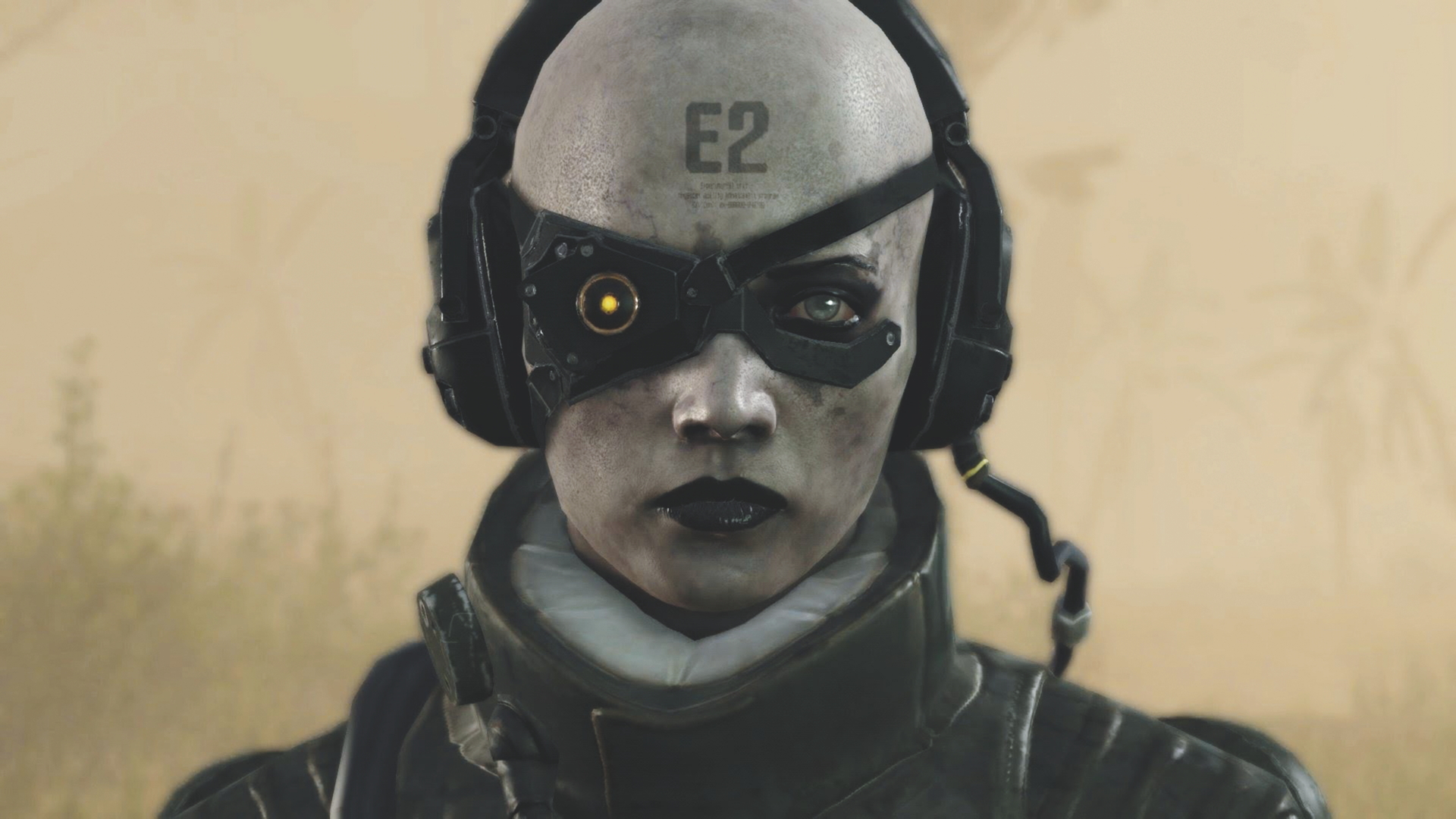
Metal Gear Solid 5’s non-ending was much-discussed, and possibly a victim of mounting tensions during the development of the game. However, there’s a compelling argument that MGS5 was meant to feel ‘unfinished’, mirroring the game’s themes of identity and the phantom pain of unresolvable trauma. Now that we know what happened to Big Boss, or rather the ‘Big Boss’ of MGS5, his story still remains untold, at least in a game. For all the possible scenarios Metal Gear 6 could explore, there’s an opportunity to bridge the gap between The Phantom Pain (released 2015) and the first Metal Gear (released 1987).
The Phantom Pain might be the more recent title, but covers the chronological year 1984 in MGS lore, while Metal Gear - originally released on the MSX system in 1987 - is set in 1995 in MGS canon. Exploring how Big Boss becomes the antagonist of the series, not the FOXHOUND leader, should be the first order of business, with up to ten years of MGS lore yet to be explored as a game; although we do have a broad timeline of events that runs through this period as captured by the excellent MGS wiki.
3. Remake the original Metal Gear
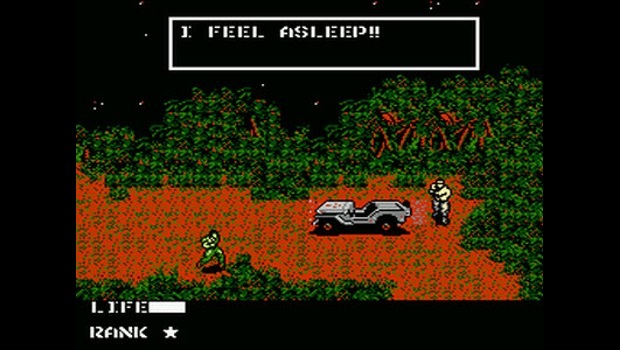
If Konami wants to play it safe and leave the series untouched, as the disconnect of Metal Gear Survive from any Metal Gear plot suggests, it could work with what’s already there. Metal Gear - not to be confused with Metal Gear Solid (1998) on PSone - is an amazing game plot-wise, and vital to understanding the story of Solid Snake. It’s also a game from 1987. A Metal Gear remake using the Fox Engine, on next-gen consoles, would not only be a dream come true for current fans, but also provide new players with the perfect entry point.
4. Give the Outer Ops mode more meaning
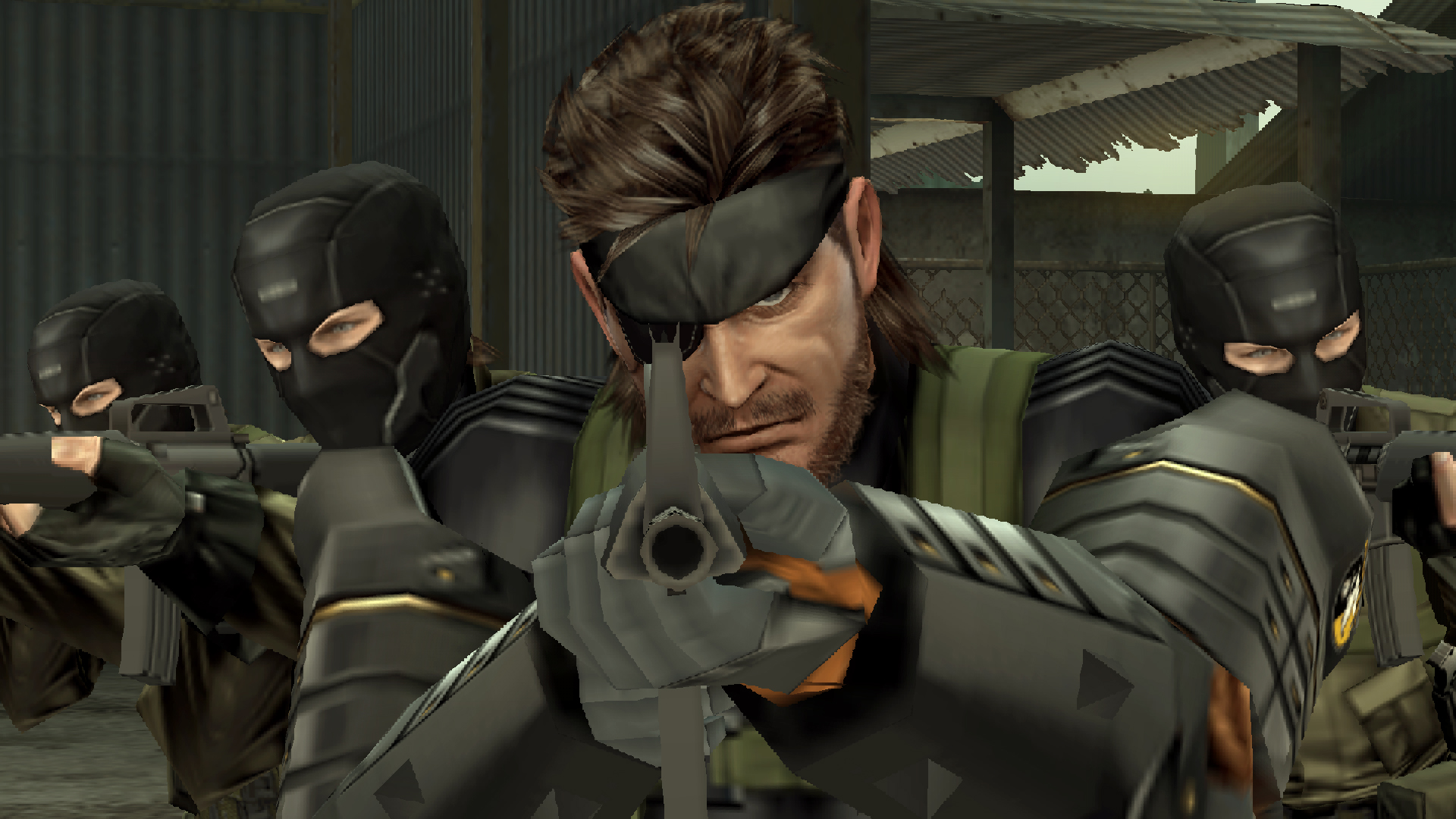
With all the systems that do exist in MGS5, asking for even more seems slightly decadent, but we’d love to see the return of the Outer Ops feature from MGS: Peace Walker (the PSP game from 2010). Outer Ops are bonus missions that you can assign to NPCs to acquire resources), and these were missing in MGS5. It does make sense for your Diamond Dogs to be expendable from a narrative standpoint, but gameplay-wise, what used to be combat you could follow and get invested in by building your own team now amounts to little more than number-crunching. Likely due to the massive variety of options available to you, building this into a full feature would be overwhelming, but it could also work well in case the plot revolves around Big Boss.
5. Build a better multiplayer mode
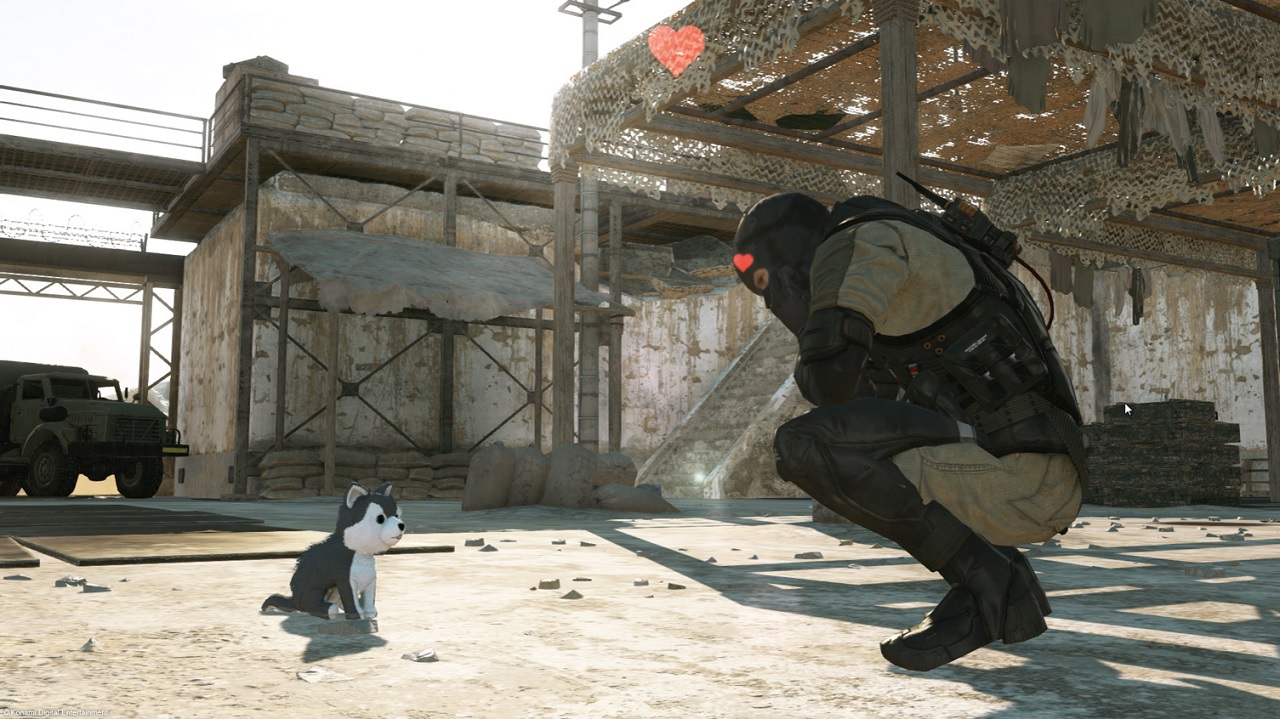
Metal Gear Solid led to two online spin offs: 1) Metal Gear Online and 2) The ‘Forward Operating Base’ (FOB) mode. Metal Gear Online was an interesting game that never gained the attention it might have deserved. Especially the Cloak and Dagger mode that fits the essence of the game exactly. The Forward Operating Bases? Not so much. Due to a skewed risk-reward system, players will either not bother invading, or will be left to their own devices by the base owner, neither resulting in the one-on-one battles FOBs are supposed to facilitate. We think no one would miss the FOB system much, that time would likely be better invested in additional multiplayer maps and classes.
This wish list shows that even if Konami leaves the idea of Metal Gear Solid as it is right now completely untouched – an open-world game with a multiplayer component that revolves around base-building – some tweaks would go a long way to improve what was already a fantastic game.
The true sore point is of course the story, and the fact that in this aspect, Hideo Kojima is nigh-on irreplaceable. Even a Metal Gear remake would have to flesh the plot out to make a game worthy of today’s standards, so someone will confidently have to take up the mantle, and not try to shy away from Kojima’s legacy like Metal Gear Survive did. Whether that ever happens remains to be seen.
Malindy is a freelance video games writer for outlets like Eurogamer, PLAY, PCGamer and Edge Magazine, who also occasionally works in game design consultation and localization. As a Japanese speaker, she enjoys Japanese pop culture and is always on the hunt for the next game from the Land of the Rising Sun. She also particularly enjoys narrative-focused games and cute indies, and always seeks to learn more about the business-side of the gaming industry.
- Josh WestEditor-in-Chief, GamesRadar+
- Heather WaldSenior staff writer
- Joe DonnellyContributor



